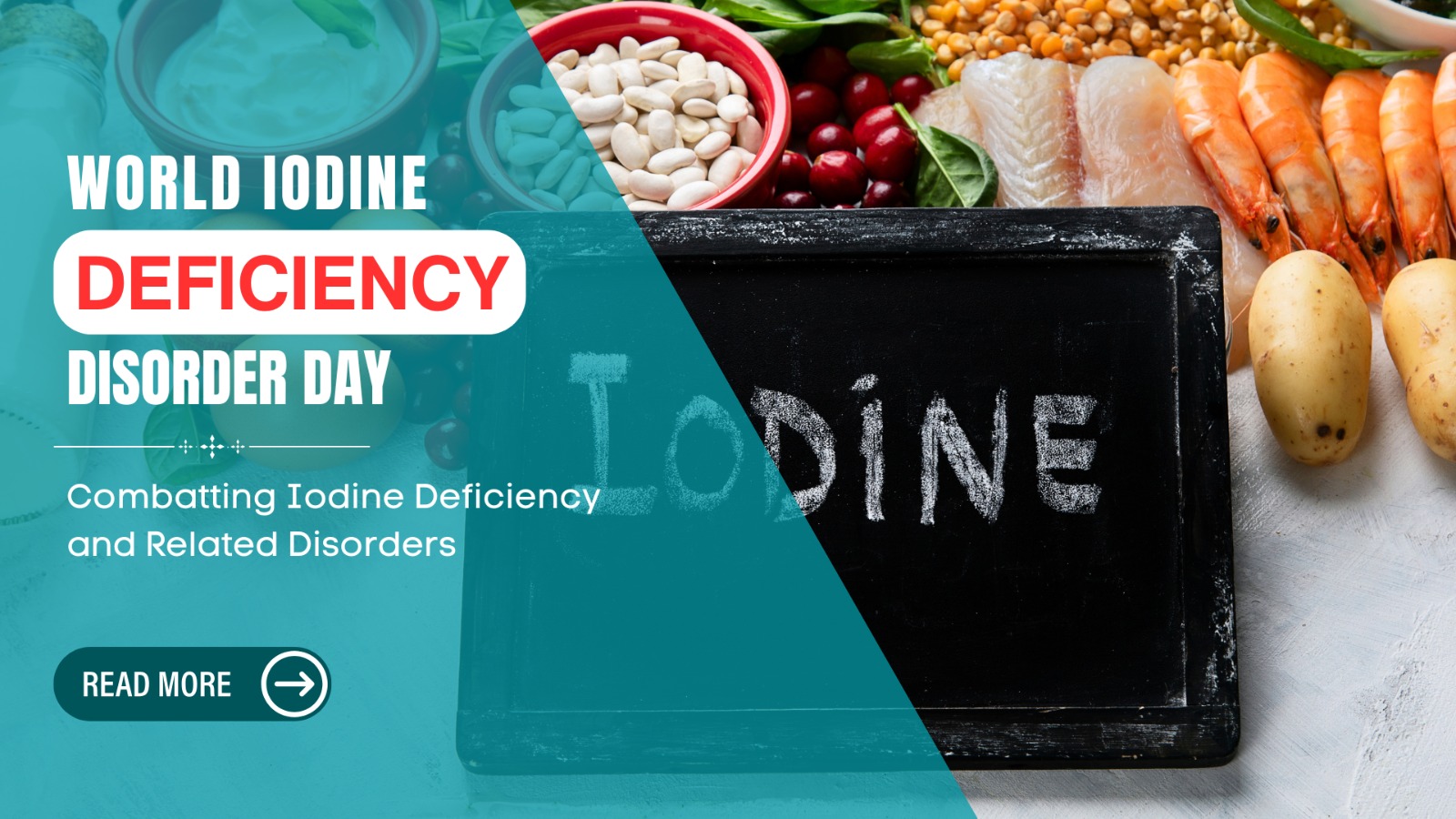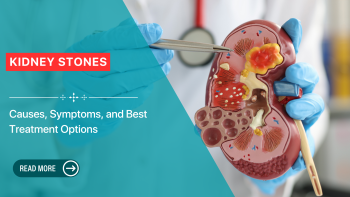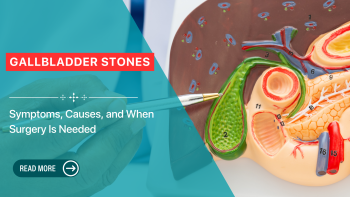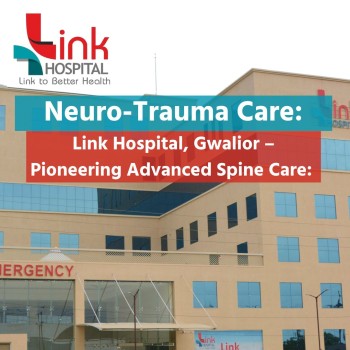World Iodine Deficiency Disorder Day: Iodine deficiency remains a widespread yet preventable health issue affecting millions globally. This essential micronutrient is crucial for thyroid hormone production, which influences metabolic rate, brain development, and growth. To address the alarming consequences of iodine deficiency, World Iodine Deficiency Disorder (IDD) Day, observed on October 21st, raises awareness about the importance of iodine in maintaining optimal health and the dangers of deficiency, which affects millions globally.
Iodine Deficiency and
Related Disorders
Iodine deficiency can lead to a variety
of health issues, including:
- Goitre:
○
Cause: Enlargement of the thyroid gland due to
insufficient iodine.
○
Symptoms: Visible swelling in the neck,
difficulty swallowing, and breathing issues.
○
Prevention: Regular consumption of iodized
salt and iodine-rich foods like seafood and dairy.
- Hypothyroidism:
○
Cause: Low thyroid hormone production due to
iodine deficiency.
○
Symptoms: Fatigue, weight gain, cold
intolerance, and sluggish metabolism.
○ Prevention: Adequate iodine intake through a balanced diet, and regular thyroid check-ups.
- Cretinism:
○
Cause: Severe iodine deficiency during
pregnancy affects fetal brain development.
○
Symptoms: Mental retardation, stunted growth,
deafness, and motor dysfunction in infants.
○
Prevention: Ensuring adequate iodine intake in
pregnant women through diet or supplements.
- Cognitive Impairments in Children:
○
Cause: Prolonged iodine deficiency leading to
poor neurodevelopment.
○
Symptoms: Reduced IQ, learning disabilities,
and delayed mental and physical growth.
○
Prevention: Ensuring that children receive
sufficient iodine from birth through breastfeeding or iodine-fortified foods.
General Precautions for
Iodine Deficiency Prevention
To combat iodine deficiency and its
associated disorders, individuals can take the following precautions:
●
Use iodized salt in daily cooking to ensure an
adequate intake of iodine.
●
Incorporate iodine-rich foods such as seaweed,
fish, dairy products, eggs, and fortified cereals into your diet.
●
Regular thyroid screenings can help detect
early signs of iodine deficiency and prevent further complications.
●
Pregnant and breastfeeding women should
consult their healthcare provider to ensure they meet the recommended iodine
intake for optimal fetal and infant development.
Why Choose Link Hospital,
Gwalior?
Link Hospital offers comprehensive care for iodine deficiency and related disorders. Our
team of expert endocrinologists,
paediatricians, and nutritionists ensures:
●
Advanced diagnostics for early detection of
thyroid dysfunction and iodine deficiency.
●
Customised dietary plans tailored to prevent
iodine deficiency through proper nutrition.
●
Hormonal therapies for those suffering from
severe thyroid imbalances due to iodine deficiency.
●
Prenatal care programs support the health of
expectant mothers and infants, preventing developmental issues related to
iodine deficiency.
If you suspect iodine deficiency or any
thyroid-related symptoms, don't delay. Consult
with the specialists at Link Hospital for early detection and treatment.
Our expert team is equipped to provide personalized medical advice and
effective treatments to safeguard your health and well-being.
Prevent
iodine deficiency with expert guidance at Link Hospital—where advanced care
meets compassionate treatment.











